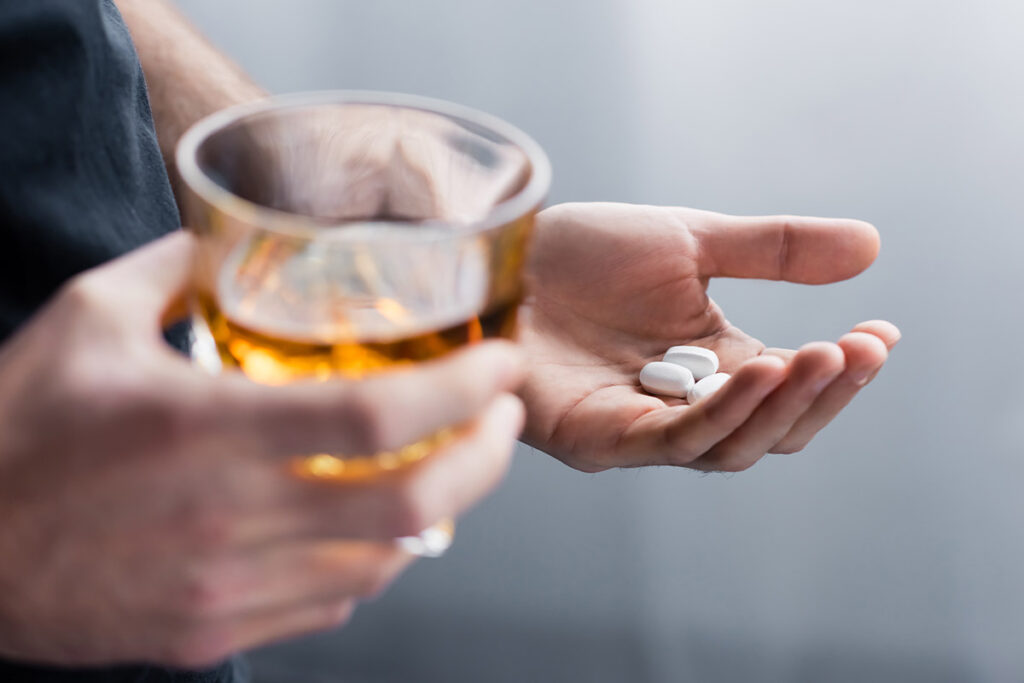Before beginning any new medication, it’s imperative to understand the drug and how it works thoroughly. It’s also essential to understand any side effects or interactions that may arise while taking the new medication. Some prescribed medications and over-the-counter drugs can have adverse reactions when taken with alcohol or other substances. One medication that is not recommended to be taken with alcohol is the antidepressant fluoxetine (Prozac). Prozac is a common drug prescribed for depression and anxiety and has helped countless people lead normal and fulfilling lives. However, mixing Prozac and alcohol can have serious side effects, such as increased depression, anxiety, and drowsiness. It may also lead to addiction to both substances, leading to the need for a polysubstance abuse treatment program.
What Is Prozac (Fluoxetine)?
Fluoxetine, brand name Prozac, is an incredibly popular and well-known antidepressant. Prozac is most often prescribed for depression but can also be used in the treatment of panic disorders, anxiety, obsessive-compulsive disorders, and bulimia.
Prozac is an SSRI or selective serotonin reuptake inhibitor. These drugs influence the serotonin neurotransmitter in the brain and help boost mood and prevent feelings of anxiety and depression. SSRIs are a prevalent form of antidepressant used today because they cause very few side effects and interactions compared to other types of antidepressants.
Before you begin taking Prozac, or any new medication, your doctor will first review your medical history and any other drugs you are currently taking. It’s essential to inform your doctor of any over-the-counter or prescribed medications you are on and whether you drink alcohol or use drugs. This discussion prevents you from experiencing any adverse reactions when taking Prozac.
Can You Mix Alcohol with Prozac?
Side effects are always a possibility when mixing any two substances, and it’s essential to understand how both drugs work before mixing them.
Both Prozac and alcohol can cause tiredness and interfere with alertness as well as coordinated motion. When combined, these effects are only enhanced, which means that drinking alcohol while taking Prozac can cause intense drowsiness much quicker than using any one substance on its own.
The drowsiness caused by mixing these two substances can result in potentially dangerous situations, such as impaired driving and poor decision-making skills. You are also at an increased risk of falling and becoming injured.
Additionally, alcohol can exacerbate any side effects that Prozac may cause. Common side effects include the following:
- Dizziness
- Insomnia
- Feeling anxious
- Upset stomach
Drinking alcohol while taking Prozac can potentially make these side effects worse.
Long-Term Effects Of Mixing Alcohol And Prozac
While no long-term effects have been found through research or studies, this doesn’t mean that long-term effects don’t exist. It’s possible for the effects of mixing Prozac and alcohol to worsen over time.
Prozac is a drug that is taken for extended periods of time. As a result, it’s best to discuss your drinking habits with your doctor before consuming alcohol while taking Prozac. Your doctor may suggest that you avoid alcohol entirely while taking fluoxetine, or they may say it’s okay to drink on occasion. Whatever is suggested, it’s important to follow your doctor’s orders.
The Dangers of Mixing Prozac and Alcohol
What’s more, mixing Prozac and alcohol comes with a risk of fluoxetine not working to its fullest. For example, if you are taking Prozac to treat depression, you run the risk of continued symptoms of depression when drinking alcohol. In some cases, it can even make symptoms of depression worse than when you started taking Prozac.
Other potential risks that can arise when mixing Prozac and alcohol include the following:
- Sudden fatigue and weakness
- Dizziness
- Feelings of hopelessness
- Suicidal thoughts
If you experience any of these symptoms, it’s essential to stop drinking immediately and contact your physician.
Medically Supervised Detox Programs for Alcohol Use
If you believe you are struggling with alcohol addiction, the first step to overcoming it is to detox from alcohol. However, ideally, you should not do this alone. Withdrawing from alcohol can be extremely uncomfortable and potentially dangerous, especially if you have a high physical dependence on the substance.
Medically supervised detox programs provide the medical support needed to ensure a safe and comfortable withdrawal from alcohol. These programs also provide a substance-free environment, allowing individuals to detox without the temptation to drink. Most detox programs are three to 10 days, but the exact length will depend on the patient’s unique condition.
Alcohol withdrawal symptoms can be not only uncomfortable but potentially dangerous and even life-threatening in some cases. Symptoms can begin two to six hours after the last drink and can last several days or even weeks. Symptoms depend largely on the level of physical dependence an individual has on alcohol and may include:
- Vomiting
- Insomnia
- Shaky hands
- Nausea
- Seizures
- Hallucinations
If you experience these symptoms, it’s important to seek medical attention immediately.
Seek Support at Vertava Health
At Vertava Health, we offer effective inpatient polysubstance abuse addiction treatment programs. We are also many outpatient treatment programs for those with less severe conditions or who cannot get away from their responsibilities for an extended length of time. The most popular forms of outpatient treatment include intensive outpatient programs and partial hospitalization programs. If you are unsure which type of treatment is best for you, speak to our admissions counselors.
Contact us today at 844.470.0410 to learn more about the interactions and side effects that can arise when mixing alcohol and Prozac or for information on treatment programs.


